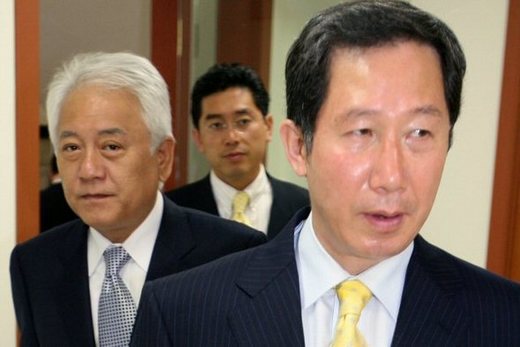Posted on : Jun.10,2006 11:21 KST
Focus on ideology rather than support base blamed for election failure
A group of political experts blamed the lopsided defeat of the ruling Uri Party in the May 31 local-level elections on the party’s failure to consolidate its support base. The experts said the party needs to focus more on economics than ideology in order to appeal to centrists if it wants a shot at the presidential elections next year.
In an unprecedented defeat for a South Korean ruling party, the Uri Party won only one of the 16 gubernatorial and metropolitan mayoral posts, with the main opposition Grand National Party taking 12 posts.
On Friday, the Uri Party held a seminar, inviting professors and lawmakers to analyze the causes of the humiliating defeat.
Kim Hyeong-joon of Kookmin University cited as reasons for the defeat the dissolution of the party’s support base, as well as poor economic growth acting as the rallying point around which opponents consolidated.
He said that many previous Uri supporters, many of whom laborers, students, and middle-class members, felt disenchanted by the party as the economy worsened and real-estate prices soared. "The May 31 election was the first official evaluation of President Roh’s administration," Professor Kim said.
He advised the ruling party to keep its centrist reformism intact, saying that the 2007 presidential election will be determined by who appeals more to centrists in the Seoul metropolitan area.
Kim Ho-ki, professor of Yonsei University, echoed this opinion, saying that the election was a sentence meted out by the middle-class population to the incumbent administration.
"The results of the local elections reflect what those people think of the government," Kim said.
To regain support, he urged the Uri Party to focus more on economic growth, job creation, welfare, and social polarization problems rather than on "democratization."

